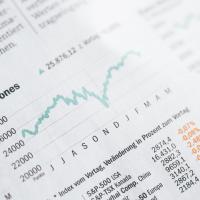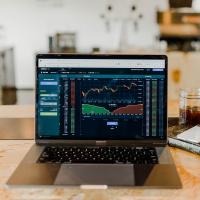Home > Investment Guide > Investing Basics
Tips and tricks for successful CFD trading in Kuwait

CFD trading in Kuwait, otherwise known as Contracts for Difference, is a popular form of derivative trading. It allows traders to benefit from price movements without owning any underlying asset. In essence, CFD trading works by speculating on the future direction of an asset’s prices. With this type of trading, investors do not have to concern themselves with complicated stock market rules and regulations, as they can speculate on the movement of prices and take advantage of fluctuating markets. Thus, it makes sense that many traders are now turning to CFD trading in Kuwait due to its potentially lucrative and flexible investment options.
However, before engaging in this form of investing, one must know about the different types available online and the strategies they should deploy. This article will provide some tips and tricks on successfully trading CFDs in Kuwait, including what factors to consider when choosing a broker, the types of CFD products available, and the trading strategies one can use.
Tips & tricks for successful CFD trading in Kuwait
To maximise your chances of doing well while trading CFDs in Kuwait, here are some tips and tricks that traders should keep in mind:
Choose a reliable broker: The first step towards successful CFD trading is finding the right broker who offers an excellent platform with low spreads and commissions. As such, conducting thorough research into different brokers before deciding is crucial. It is also essential to check the broker’s customer support, trading terms, and withdrawal policies.
Understand the types of CFD products: There are various kinds of CFD instruments that one can trade in Kuwait, such as stocks and indices, commodities, currencies, and bonds. Each type has unique characteristics that must be understood before entering a position. For instance, stocks tend to be more volatile than indices, so it is crucial to understand the nuances behind each asset class before investing. Having a sound CFD trading analysis plan may be useful in improving your understanding of this.
Develop a trading strategy: A sound trading plan is essential for success in any market, especially regarding CFDs. Traders should develop a strategy based on their risk appetite and goals. This could involve using fundamental analysis or technical analysis, or a combination of both. A good trading strategy should include key levels, entry/exit points, and risk management measures such as stop and limit orders.
Utilise trading tools: Trading CFDs in Kuwait can be more accessible thanks to the various online trading tools. These include charting software, automated trading systems, and other analysis tools to help traders make informed decisions when entering positions.
Don’t let your emotions get in the way: It is also essential to remember that trading CFDs in Kuwait should be done with a cool head. This means not letting emotions like fear or greed dictate one’s decisions. Sticking to a trading plan and not making impulsive decisions is essential, as this can lead to unnecessary losses.
Practise with a demo account: Before trading with real money, it is advisable to open a demo account and practice trading CFDs in Kuwait. This will help traders familiarise themselves with the market, trading strategies, and various available tools. A demo account will also provide valuable insights into how the market works so that traders can make informed decisions when trading with real money.
Track your progress: Finally, tracking one’s progress over time is essential. This can be done by keeping a trading journal and recording all one’s trades. This will help traders identify any mistakes they may have made and determine which strategies work best for them.
What are the advantages and disadvantages of CFD trading?
CFD trading offers several advantages, such as the ability to speculate on rising and falling markets, leverage opportunities with lower margin requirements, and access to global markets. However, some risks are also associated with CFDs due to the nature of their leveraged structure. These include the potential for higher losses in volatile markets and increased risk due to a lack of physical asset ownership.
Another disadvantage is the limited range of CFDs available in Kuwait. Lastly, due to the highly leveraged nature of CFDs, it is crucial to be aware of potential margin calls and liquidation if positions move against a trader.
All in all
CFDs trading can be a lucrative investment opportunity in Kuwait if done correctly. However, there are some key points to remember. It is essential to choose the right broker, understand the various instruments available, develop a sound trading strategy, utilise the right tools and resources, and keep emotions out of it. Practise with a demo account before investing real money to gain insight into the market’s workings.
Lastly, familiarise yourself with both disadvantages and advantages of CFD trading, make informed decisions that best suit your needs and track your progress. With these tips and tricks in mind, you will be well on your way to successful CFD trading in Kuwait.
More to Read:
Previous Posts:




